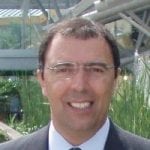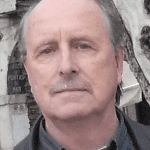In 2019, Portuguese Chapter will be organizing a cycle of webinars dedicated to topics on Engineering Education. The seminars will be held held monthly, excluding July and August, and will last for one-hour each, with an initial 40 min presentation followed by Q&A. These webinars aim at providing a meeting point for those interested in Engineering Education and to promote discussion on related topics.
December: Carlos Santos, “AVILA Crew: Pedagogical Innovation with Peer Learning”
December 16th, 5:30 PM (Europe/Lisbon)
[Register here to attend the webinar] Registration data will be used to send you the webinar credentials.
 Add Event to Calendar
Add Event to Calendar
Abstract
This webinar presents a strategy for creating a team of mentors, AVILA Crew, consisting of former students from a course who volunteered to be responsible for the conceptualization, organization and implementation of mentoring sessions named AVILA Sessions.
These AVILA Sessions are based on the principle of autonomy applied to the team of mentors, who organize themselves to develop mentoring sessions, typically in-game format, where the role of teachers is mainly to identify the curricular topic to be addressed and to ensure scientific correction of each session methodology and exercises.
This approach enhances the creative skills of alumni, still able to remember the difficulties they have recently had with those syllabi, resulting in a set of notably innovative pedagogical solutions that are distinct from teacher’s traditional strategies and pedagogical approaches.
During the webinar practical cases of AVILA Sessions already held (SQL, arrays, git,…) will be presented, as well as strategies for team building. Organization and working methodologies used by teachers and mentors to prepare the sessions will be discussed.
URL: https://www.facebook.com/avilacrewntc/
Presenter
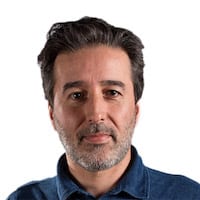

Since 2016 he is the Programme Director of the Master in Multimedia Communication at University of Aveiro (UA).
From 2008 to 2015, he was the executive coordinator and lead researcher of the SAPO Labs at University of Aveiro R&D initiative. Since 2009, he is the coordinator of the SAPO Campus research project (http://campus.sapo.pt). Since 2016, he is the technical lead researcher of the Global Portuguese Scientists (GPS) platform (http://gps.pt). Since 2018, he is the coordinator of the UA Web Portal (https://www.ua.pt) development team.
His research interests are related with Personal Learning Environments, promotion of Web 2.0 tools in educational contexts, gamification, recommendation systems, technology for building communities and pedagogical innovation with technology. He is (co-)author of 6 books in the topic of Multimedia Technologies for secondary level teaching and learning and has also (co-)authored over 40 scientific publications (journals/conference papers and book chapters) on subjects related with ICT, EdTech, TEL and PLEs. He is a Program Committee member for various national and international conferences in the referred scientific fields.
November: José Manuel Oliveira, “The challenges of Project Based Learning: Reasons for the lack of adoption of Active Learning Pedagogical Approaches Across HE Institutions”
November 25th, 5:30 PM (Europe/Lisbon)
[Register here to attend the webinar] Registration data will be used to send you the webinar credentials.








Abstract
In project-based learning (PBL) environments, learning is triggered by real-life problems, which are usually complex, multidisciplinary and open-ended, in the sense that there may be more than one possible solution. The learning process unfolds while students attempt to solve those problems, in a self-directed effort. This type of setting also creates the necessary environment for the development of personal and professional capabilities: students work in small groups, plan their own tasks, search for information autonomously, in a context which is close to the requirements of the challenges of the real life working place.
The first-cycle technological programmes held at the Polytechnic School of Águeda (ESTGA), University of Aveiro, have been running in a project based learning environment since 2001. The presentation will set out to discuss general aspects of Project-Based Learning and will then concentrate on the particular implementation of the ESTGA’s PBL mode, just as an example.
If time allows, this presentation will also try to discuss why, regardless of the enormous amount of research that advocates active learning strategies as much more effective than traditional methods of Teaching & Learning, institutions are still unable to implement those strategies in an integrated, overall structure, revealing an inertia that is akin of the extremely rapid development of the societal factors and employers’ expectations of the graduate students that HE institutions provide them.
Presenter
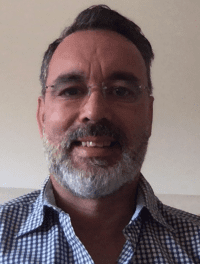

October: João Pedro Pêgo, “De par em par – A peer observation of teaching program at University of Porto”
October 28th, 5:30 PM (Europe/Lisbon)
[Register here to attend the webinar] Registration data will be used to send you the webinar credentials.








Abstract
Higher education teaching and learning in Europe faces challenging times and deep changes, largely due to many reforms originated by the so-called Bologna process. To answer the needs of teachers in this new context, the “De Par em Par na U. Porto” project was created. It is a peer observation of teaching (POT) program whose main goal was, since the beginning, to use peer observation for teachers’ training purpose. It started as pilot program between the Faculty of Engineering and the Psychology and Education Science Faculty of the University of Porto, in 2009. Since 2010 it has been widespread to the most of the 14 Faculties and Schools of the University of Porto, involving over 200 participants in the last 9 years. Peer observation arises from critical friend concept and it is a common practice in several universities. The original feature of POT at Porto University is its multidisciplinary character and its training goal both to observers as to observed teachers.
Presenter
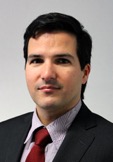

May: Manuel Castro, “Education and Technology, Synergies and On-going Activities”
(Distinguished Lecturer of the IEEE Education Society)
May 13th, 5:00 PM (Europe/Lisbon)
[Register here to attend the webinar] Registration data will be used to send you the webinar credentials.








Abstract
Our world is in continuous change, and inside the Engineering Education arena we saw those changes arising mainly in the recent years. Teaching methodologies are evolving such as remote, pocket and virtual laboratories, MOOCs and blended learning, among others like learning analytics, big, data, artificial intelligence or machine learning, assessment and engagement, they will be analyzed and connected. Those activities and learning technologies are impacting Engineering Education some of them in a softly way, some of them in a disruptive way, but always adding new ideas, methods and best practices to the world of the engineering and education. The evolution of teaching through face-to-face, distance learning and now online learning will be linked to the increasing use of technology in teaching, analyzing the main critical factors in the EHEA as changes followed by other areas like Middle East, North Africa, USA, Latin America and Far Asia and Oceania. This evolution is a key driving factor towards blended learning and jumping to open education (OERs, OCW and MOOCs) which are caused today by a change in the higher education paradigm pushed by the international crisis as well as the in-depth refurbishing of the public and private university roles in the different education steps and in life-long learning. New (and old) advances on the area of intelligence bring new changes on employability, lifelong educational or vocational training are part of our new world, where social intelligence is day to day part of our lives.
Presenter
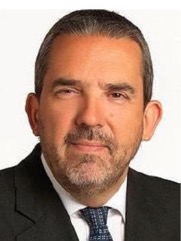

March: Pedro Guedes de Oliveira, “The Importance of Fundamentals in Electrical Engineering”
Mar 20th, 5:00 PM (Europe/Lisbon)
[Register here to attend the webinar] Registration data will be used to send you the webinar credentials.








Abstract
I believe that wherever Electrical Engineering (EE) is being taught at the higher education level, it assures, more than most of the other engineering branches (although at various degrees), a deep understanding and practice of fundamental disciplines like mathematics, physics, circuits, system theory and control, signal processing, dynamical systems, etc. Today, in many places, computers have been added to most EE degrees and again, some fundamental aspects of computer science are also taught, namely computational thinking and algorithms.
These are, in my opinion, things to be preserved and intensified, which is not something easy to do when EE has diversified so much that each subfield requires also a lot of time and effort to be acquired. Moreover, companies don’t like to be asked to take a long time training engineers in specific matters, which they would like them to bring from school. Therefore, the pressure to give more time to technical specifics is very strong.
Myself, along the many years teaching and with responsibilities in curricula design, have been tempted one way or another but today’s speed of technological change makes me a true believer in the importance of fundamentals.
In this webinar, I’ll try to make my case and illustrate it with examples and counter examples.
Presenter
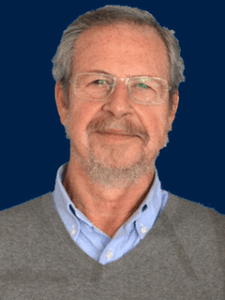

In his career he took several managing responsibilities both at the academic and scientific level, as well as several representative positions, through election, at the Scientific Council of FEUP and the General Council of the University. At present he is Professor Emeritus of the University of Porto.
He was the first president of INESC Porto (today, INESC TEC) until 2005, where he is still a researcher and Advisor to the President, and held several public positions, by invitation, namely as member of the Scientific Council for Science and Engineering of the Science and Technology Foundation, non-Executive Member of the Board of Innovation Agency and Executive Member of the Board of the Foundation for National Scientific Computation.
He has also been engaged in cultural initiatives and entities, namely as member of the General Council of CulturPorto and member of the Board of Porto 2001 – European Capital of Culture.
Presently is an Executive Member of the Board of INESC, Senior Consultant to the President of INESC TEC and General Coordinator of INCoDe.2030
February: Rui Lopes, Carlos Alves (Inova-Ria), “Motivating Pre-University Students to STEM”
Feb 27th, 5:00 PM (Europe/Lisbon)
[Register here to attend the webinar] Registration data will be used to send you the webinar credentials.








Abstract
All over the world, the demand for ICT and Electronics professionals far exceeds the supply. The case is not different in Aveiro region, where technological companies faced recurrent recruitment difficulties and skills shortages. This webinar will discuss some of the actions that Inova-Ria, an network of Electronics, Information and Communication Technologies companies, developed to narrow this skill gap. In association with the Department of Electronics, Telecommunications and Informatics of the University of Aveiro and its students’ associations, Inova-Ria started an action program under two major umbrellas: SchoolDay@Company and Tech@School, that aims at motivating pre-university students for STEM, encouraging youngsters to take a degree in ICT and Electronics.
Presenter
Carlos Alves is an Electronics and Telecommunications Engineer from the University of Aveiro, specialized in Quality Engineering from the New University of Lisbon and from ISQ. He started his professional career in 1986, in Águeda, and he now divides his time between several companies of which he is an administrator. With more than 30 years of experience in electronics, he has been involved in numerous technological projects, first as a developer and later as a top manager. During this period, he gained experience and evolved in areas such as innovation, management and interpersonal relationships, which strongly contribute to the success of projects in which he has been involved, whether they are simple or complex. Currently, he is a member of the board of Inova-Ria, an association of companies in the area of ICT and Electronics. He is an associate member and President of Light Living Lab – Association. He is a member of the Council of the Águeda School of Technology and Management (ESTGA of the University of Aveiro). He is a UN Ambassador for the SDGs – UN Sustainability Goals.
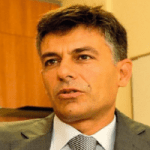

Rui Lopes started his professional activity in the area of Information Systems in 1990, with the collaboration in the Minerva Project. With a degree in Computer Science from the Faculty of Sciences of the University of Lisbon, he took over the Technical Direction of Autor-Tecnologias Multimédia in 1994. With the foundation of the company Criativa, in 1995, he began an entrepreneurship track in the technological area, being founder of the companies UEBE, Ponto.C, Look Concepts (Walk), Skillware, ContinueToGrow, Bikeemotion and Digitalwind. He assumes a profile characterized by a strong connection to people, performing functions in the areas of continuous improvement, business continuity, skills and knowledge management, interface with Science and Technology organizations, partnership management, project management, product design and promotion of R&D results. He was a member of the first Board of Inova-Ria, in 2003, having since then assumed an active position in the life of this association, either belonging to governing bodies (as a Member or Chairman of the Board), or informally, promoting inter-company cooperation. He is an active citizen who participates, individually or collectively, in initiatives that aim to promote a greater approximation of ICT and Electronics to the real needs of people and communities. He is currently a Master’s student in Regional and Urban Planning at the University of Aveiro.
January: Bill Williams, “Getting published in Engineering Education Journals”
Jan 30th, 5:00 PM (Europe/Lisbon)
[Register here to attend the webinar] Registration data will be used to send you the webinar credentials.








![]()
![]()
![]()
![]()
![]()
![]()
![]()
![]()
![]()
![]()
![]()
![]()
![]()
![]()
![]()
![]()
![]()
![]()
![]()
![]()
![]()
![]()
![]()
![]()
Abstract
Given that the leading journals in the field have high rejection rates, getting one’s research published can be challenging. The webinar will present data on Portuguese researchers published in three international journals. It will also address what to consider when selecting an appropriate journal for your work and will present strategies to consider when preparing your manuscript to avoid desk rejection and maximize its potential for publication.
Presenter
Bill Williams originally trained as a chemist at University College Cork, Ireland and went on to work in education in Ireland, UK, Eritrea, Kenya, Mozambique and Portugal and to run international distance courses for the International Labour Organization in various African countries.
He is a member of the Centre for Management Studies (CEG-IST) of Instituto Superior Técnico, Universidade de Lisboa, Professor Jubilado of Instituto Politécnico de Setúbal, Portugal and Adjunct Senior Research Fellow at the Technological University Dublin (TU Dublin), Ireland.
His research interests include engineering practice, gender and the global evolution of engineering education research. He is lead editor of the edited volume Engineering Practice in a Global Context, Understanding the Technical and the Social published by Taylor and Francis in 2013 and associate editor of the Journal of Engineering Education and of the European Journal of Engineering Education and has served as guest associate editor for two special issues of IEEE Transaction on Education.
He serves as a member of the Board of the Working Group on Engineering Education Research of SEFI, is a member of the Review Committee of the Taxonomy of Engineering Education Research curated by the University of Michigan and is a founder member and current vice-president of the Portuguese Society for Engineering Education (SPEE).
This webinar is organized in association with SPEE, the Portuguese Society for Engineering Education.

